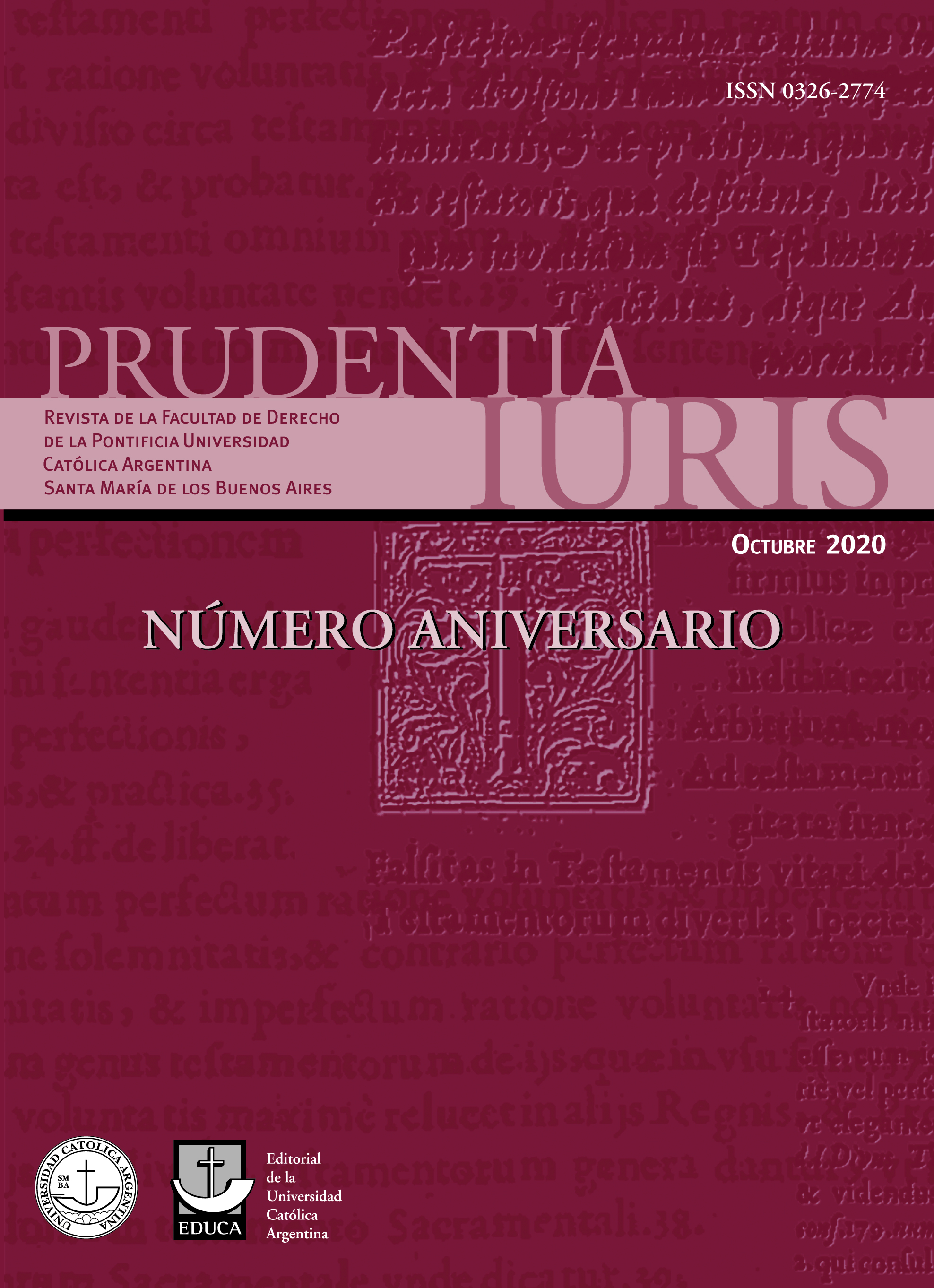DEL VOLUNTARISMO JURÍDICO A LA RAZÓN PRÁCTICA EN EL DERECHO
Palabras clave:
Validez jurídica, Justificación racional, Voluntarismo, Control de constitucionalidadResumen
Durante la vigencia plena del Estado de Derecho Legal predominó, entre los juristas, primero, la teoría iuspositivista legalista y, luego, la teoría pura kelseniana. La creación del Derecho era fruto de la voluntad del legislador o del particular por medio del contrato, no requería ninguna justificación racional para sostener la validez de la norma jurídica. En tiempos del Estado de Derecho Constitucional se confirma la tesis de la necesaria reconciliación del Derecho con la razón práctica valorativa o moral, apelando a la filosofía aristotélico-tomista o a la kantiana. La validez de toda norma jurídica exige el control de justificación racional, de modo que el control de constitucionalidad se asimila al control de racionalidad. La doctrina de la sentencia arbitraria confirma esa teoría de la validez, y ella está respaldada no solo por la Constitución argentina sino también por razones intrínsecas u ontológicas del Derecho.Descargas
Referencias
- Alexy, R. (2008). “¿Derechos Humanos sin Metafísica?”. En Anuario de la Asociación Argentina de Filosofía del Derecho “Ideas y Derecho”. Buenos Aires.
- Alexy, R. (1993). Derecho y razón práctica. México. Fontamara, 55.
- Alexy, R. (1997). El concepto y la validez del Derecho. Barcelona, 44.
- Alexy, R. (2000). “La institucionalización de la razón”. En Persona y Derecho. Pamplona. Universidad de Navarra, vol. 43, 237.
- Alexy, R. (2002). “Recht und Moral”. En Harle, Wilfried; Preul, Reiner (Eds.). Ethik und Recht. Margurg. N. G. Elwert Verlag, 85.
- Alexy, R. (1995). Teoría del discurso y Derechos Humanos. Universidad Externado de Colombia, 79.
- André-Vincet (1963). “La notion moderne de droit natural et le voluntarisme”. En Archives de Philosophie du droit.
- Aranguren, J. L. (1958). “Ética”. Revista de Occidente. Madrid, 327.
- Bonnecase, J. (1944). La escuela de la exégesis en Derecho Civil. México. Cajica, 160.
- Carnap, R. (1965). “La superación de la metafísica por medio del análisis lógico del lenguaje”. En El positivismo lógico. México. FCE, 66.
- Carnap, R. (1985). Manifeste du Cercle de Vienne. E. Antonia Soulez. PUF.
- Cotta, S. (1987). Justificación y obligatoriedad del Derecho. Madrid. Ceura, XIV.
- Finnis, J. (2000). Ley natural y Derecho Natural. Buenos Aires. Abeledo Perrot, 48.
- Kelsen, H. (2000). Teoría pura del Derecho. México. Ed. Porrúa, 353.
- Kelsen, H. (1979). Teoría general del Derecho y del Estado. México. UNAM, 15.
- Nino, C. S. La validez del Derecho. Buenos Aires. Astrea, 7.
- Olgiatti, F. (1977). El concepto de juridicidad en Tomás de Aquino. Pamplona. EUNSA, 51 y 339.
- Riedel, M. (ed.) (1972-1974). Rehabilitierung der pracktischen Philosophie. Freiburg i.B., Rombach, 2 vols.
- Suárez Francisco. De legibus, 1-12.
- Tomás de Aquino. Suma Teológica, I-II, 90, 4.
- Vigo, R. (2015). Interpretación (argumentación) jurídica en el Estado de Derecho Constitucional. Santa Fe. Rubinzal-Culzoni.
- Vigo, R. (2015). Iusnaturalismo y neoconstitucionalismo: coincidencias y diferencias. Buenos Aires. EDUCA.
Descargas
Publicado
Número
Sección
Licencia










